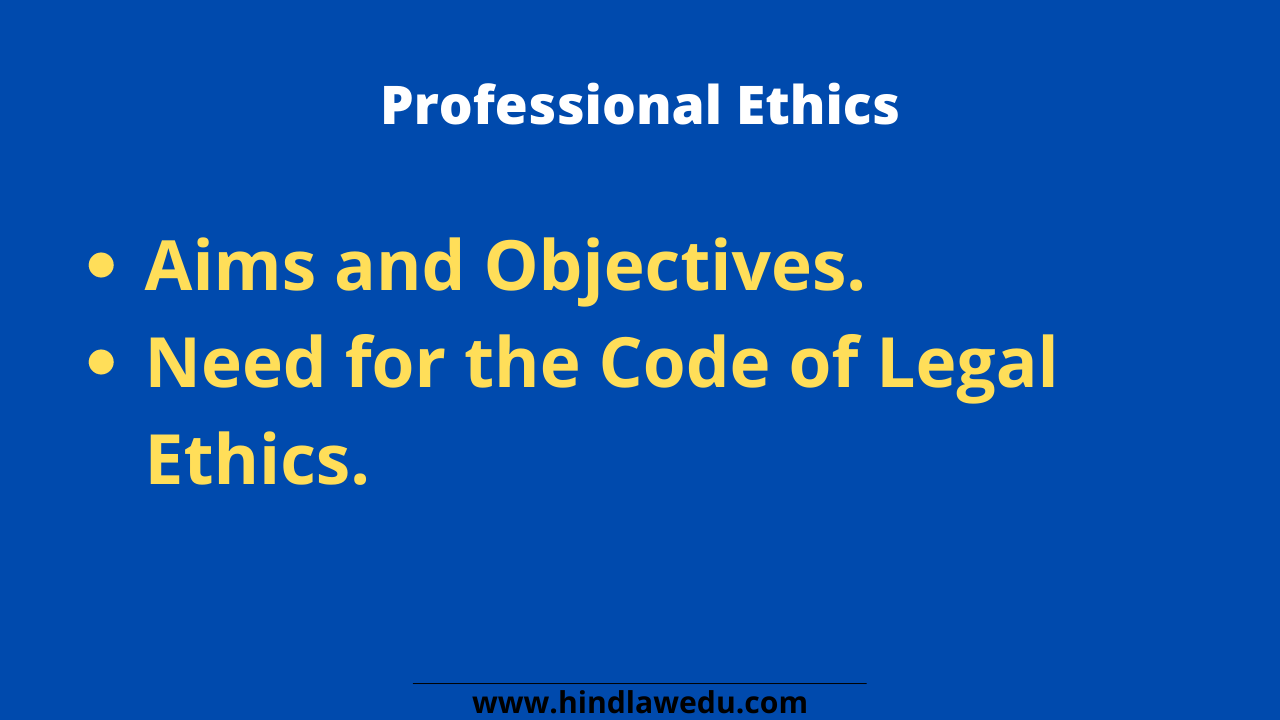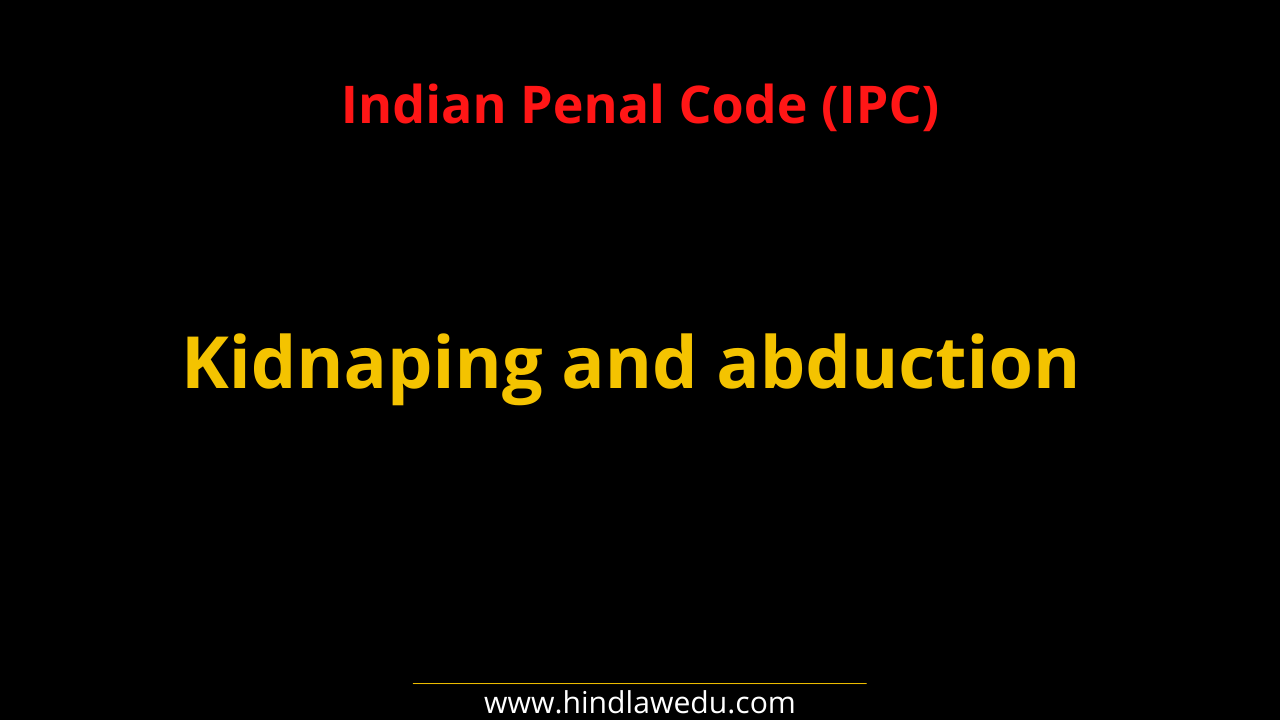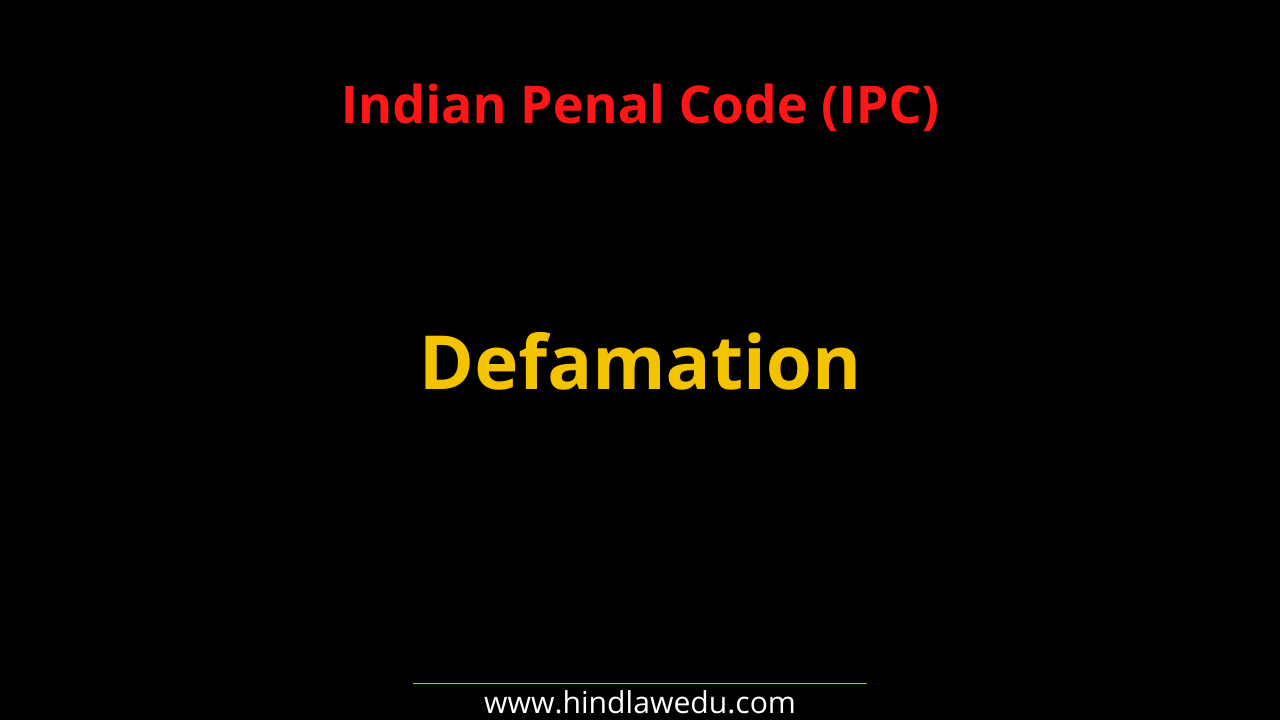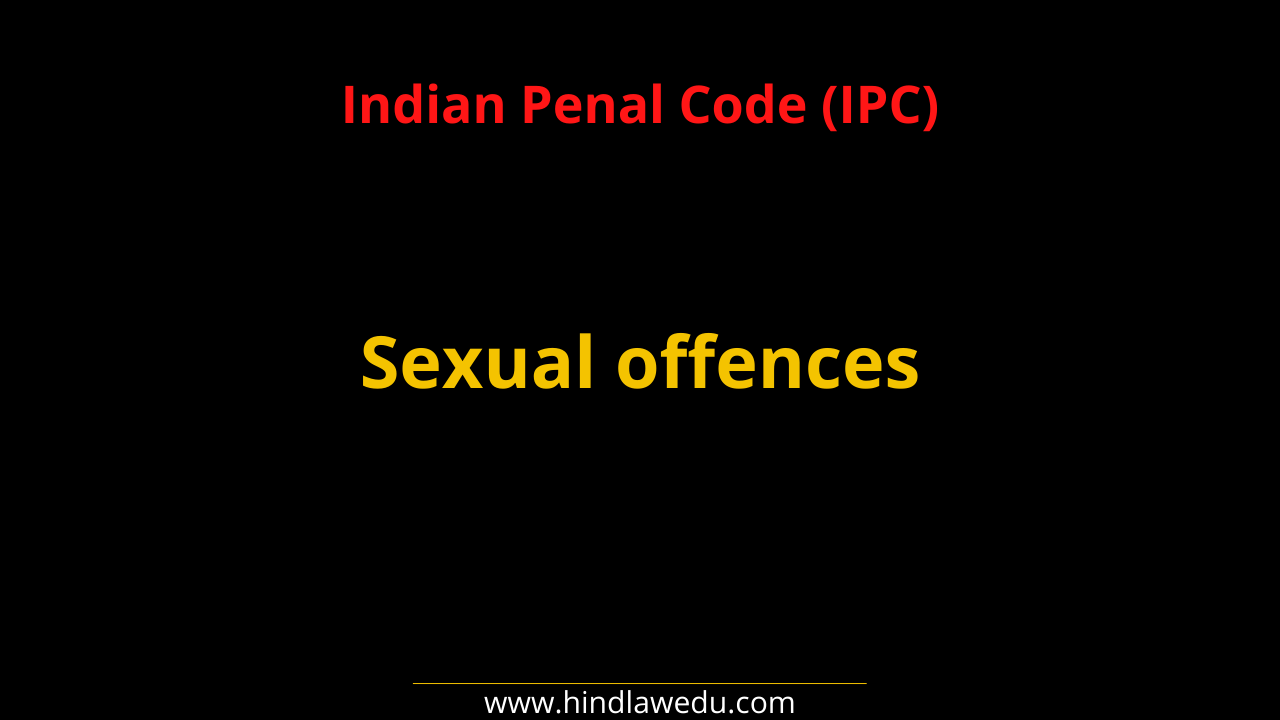Table of Contents
Introduction
The word kidnapping has been derived from the word “kid” meaning child and “napping” means to steal. Therefore, kidnapping literally means child stealing. Section 359 – 369 of the code has made kidnapping and abduction punishable.
The main object of enacting these Provisions is to secure the personal liberty of citizens, to give legal protection to children of tender age from being abducted or seduced for improper purposes and to prevent the rights of parents and guardians over their wards for custody or upbringing.
Kidnapping
Section 359 of Indian penal code classified kidnapping into two kinds –
(a) Kidnapping from India (Section 360 IPC)
(b) Kidnapping from lawful guardianship (Section 351 IPC)
Kidnapping from India : Section 360
According to Section 360 of the Indian Penal Code 1860, whoever conveys any person beyond the limits of India without the consent of that person, or of some person legally authorised to give consent on behalf of that person, is said to kidnap that person from India.
To invoke Section 360 following ingredients are to be fulfilled –
(1) That the person kidnapped was in India at the time of offense.
(2) That the accused conveyed such a person beyond the geographical limits of India.
(3) Without the consent of that person, OR of someone who is legally authorized to give consent on behalf of that person.
Note: The offense under this section may be committed in respect of any person, male or female, major or minor.
Kidnapping from lawful guardianship : Section 361
When any person takes away or entices(फुसलाना) any minor or a person of unsound mind, away from the keeping of their lawful guardianship without their consent, this is a case of Kidnapping from Lawful Guardianship. For the purpose of this section, any boy below the age of 16 years and any girl below the age of 18 years is minor.
To constitute an offense under this Section the following ingredients are to be fulfilled –
(1) There must be the taking or enticing of a minor, or a person of unsound mind.
(2) Such minor must be under 16 years of age if a male OR under 18 years of age if a female.
(3) Taking or enticing must be out of the keeping(due care or protection) of the lawful Guardian of such minor or person of unsound mind; and
(4) Taking or enticing must be without the consent of such guardian.
Explanation: The words “lawful guardian” in this section include any person lawfully entrusted with the care or custody of such minor or other person.
Note: there is a difference between legal guardian and lawful guardian. When a father sends his son to school with his servant, friend, relative etc. here father is a legal guardian and servant or friend is lawful guardian for that matter.
Exception:
This section does not extend to the act of any person who in good faith believes himself to be the father of an illegitimate child, or who in good faith believes himself to be entitled to lawful custody of such child unless such act is committed for an immoral or unlawful purpose.
Punishment for Kidnapping
Section 363 of the IPC deals with the punishment for the offence of Kidnapping. The punishment prescribed in this section is Simple imprisonment or Rigorous imprisonment extendable up to 7 years and Fine.
Abduction
Whoever by force compels, or by any deceitful means induces, any person to go from any place, is said to abduct that person.
Abduction means carrying away a person by fraud or force. According to Section 362 of the Indian Penal Code 1860, abduction takes place when a person by force compels or by any deceitful means induces another person to go from any place.
Ingredients:-
- By use of Force
Section 362 says that abduction can happen in two ways. One of these is force. In abduction, a person is forced to go from one place to another, against his/her will. The use of force, as mentioned in this section, must be actual, and not just a threat of force to constitute abduction.
Such as, when the accused entered Ram’s room at night and dragged him out. He resisted but was beaten by a lathi and taken away. His neighbour went and lodged a police complaint that very night. There is enough evidence to show that Ram was abducted. It was said that abduction takes place when a person is compelled by force to go from a place.
- Deceitful Means
According to Section 362, the other way abduction can take place is by inducing someone to go from someplace by misleading him/her to do something he/she would not normally do. The scope of inducement here is very wide.
Illustration: ‘A’ is a man who wears the uniform of a police officer to convince a girl, ‘B’ to come to his house with him, and because of his misrepresentation she goes with him. In this case, ‘A’ uses deceitful means to commit the offence of abduction.
- To go from any place
For abduction to be completed, it is essential that the person is compelled to go from one place to some other place, either forcefully or by using deceitful means. It cannot be called abduction if the person is not taken to someplace.
For this very reason, IPC provides for different punishments for abduction with different intentions. Abduction in itself is not a crime but when added with intention to commit other offences becomes punishable like abduction for kidnapping is punishable in Section 363A with imprisonment up to 10 years, abduction with the intention of murder is punishable with life imprisonment etc.
For example –
- if A enters the house of a girl B and lifts her in order to take her away, but when B raises alarm A dropped her and ran away, A will not be liable for abduction but he will be guilty for attempting to abduct.
- The accused threatens the victim with a pistol to get her to go with him. This would amount to abduction under this Section.
AGGRAVATED FORMS OF KIDNAPPING AND ABDUCTION
1. Section 363A of IPC makes Kidnapping for begging a punishable offence. The main objective of this section is to punish those persons who organize the begging industry and recruit people for the same. This practice has become a social evil now and grievous punishment should be awarded to those who engage and exploit the children for the purpose of begging.
This section makes maiming of a minor, kidnapping or obtaining his custody for evil purpose like employing him to begging is a punishable offence and provides him/her an imprisonment of 10 years or fine.
2. Section 364 of IPC provides that where the kidnapping or abduction takes place with the object of murder, the accused shall be punished with imprisonment for life or rigorous imprisonment up to 10 years and fine.
Illustration: If ‘A’ takes ‘B’ forcefully and then carries him to such a place where he will get murdered then that person will become liable under section 364 of IPC.
3. Section 364-A of IPC makes those persons punishable who kidnap and detain a person for any Ransom, in order to cause death or grievous hurt to that person and the action of the accused causes reasonable apprehension in the mind of the person.
The maximum punishment under this section is the death penalty or life imprisonment and fine.
In the case of Akram Khan v. State of West Bengal, the Hon’ble Supreme Court held that severe punishment must be awarded to those people who commit Kidnapping for Ransom even if such kidnapping has not led to the death of anyone, as day by day, the number of such crimes is increasing.
4. Section 365 of IPC provides that kidnapping and abduction of a person with the intention of secretly confining him and not letting him live freely are punishable with imprisonment up to 7 years and fine. While awarding punishment under this case, the court looks into the intention of the wrongdoer.
5. Section 366 of IPC makes a person punishable who kidnaps or abducts a woman with the intention of forcing her and compelling her to marry him. Such an act takes place without the consent or will of the woman. The section also punishes those who kidnap a woman in order to have illicit intercourse with her.
If the same offence as defined under Section 366 of IPC takes place against a girl who is minor, then the offender becomes punishable as per the provisions of Section 366-A of IPC which speaks explicitly about the “procuration of the minor child”. Such an offence is cognizable, non-bailable and can be tried by the court of session.
The punishment awarded under this section extends to imprisonment up to 10 years and fine.
6. Section 366-B of IPC punishes the persons who import a girl from the territory of a foreign country to India with the intention of compelling her for illicit intercourse with another person. Such a girl must be below the age of 21 years.
The punishment awarded in this case extends to an imprisonment of 10 years and fine.
7. Section 367 of IPC punishes those persons who kidnap or abducts someone with the intention of inflicting hurt to him or to subject that person to slavery.
This section provides imprisonment to the offender to a period of 10 years and fine.
8. Section 368 of IPC punishes the offenders who conceal or keep a person in confinement after kidnapping or abducting him.
9. Section 369 of IPC punishes the offenders who are involved in the kidnapping and abduction of a child (under the age of 10) in order to ask for money and steal the property of that child.
The punishment awarded in this section extends to the imprisonment of 7 years and fine.
Also Read:















